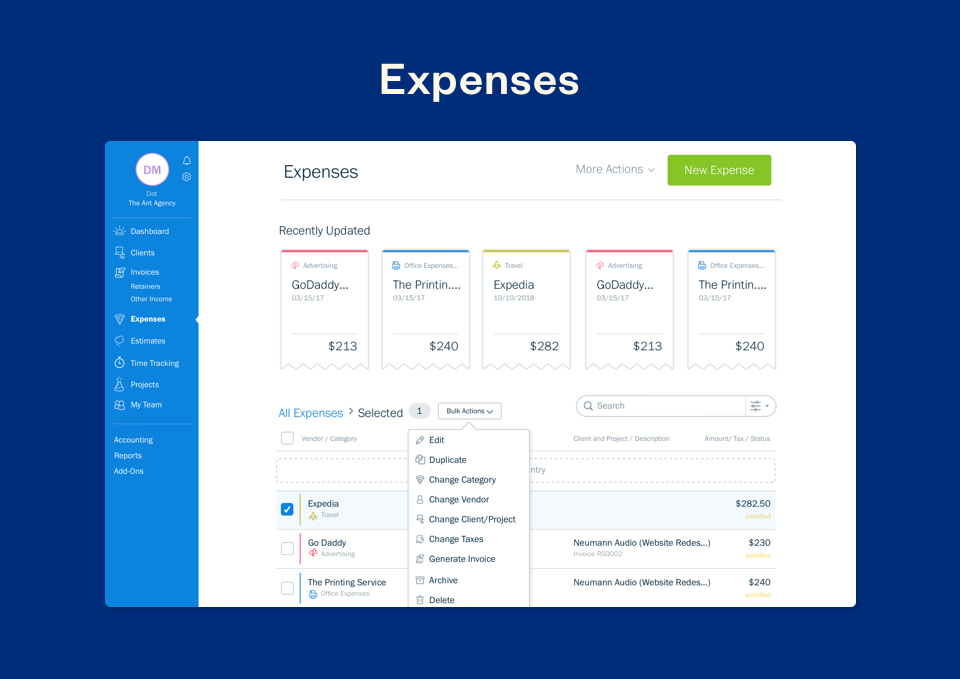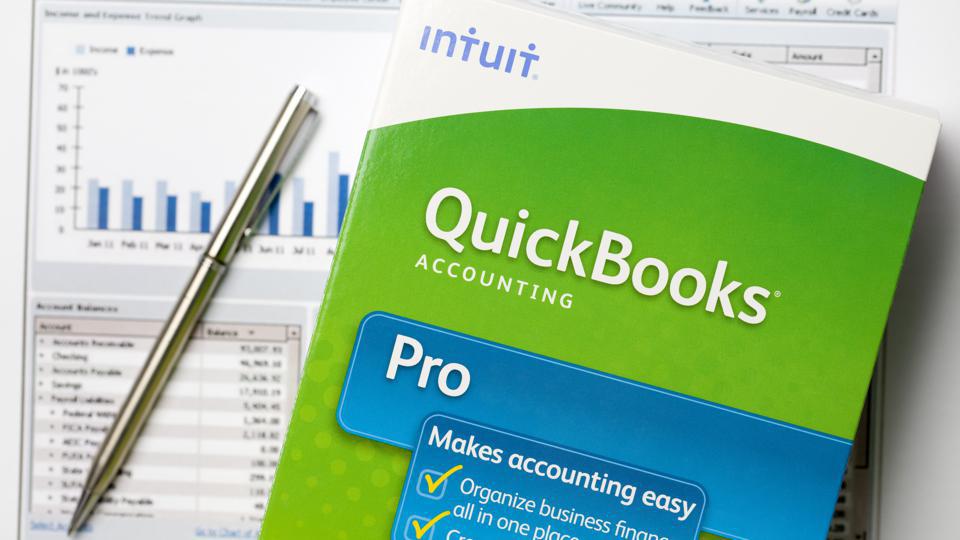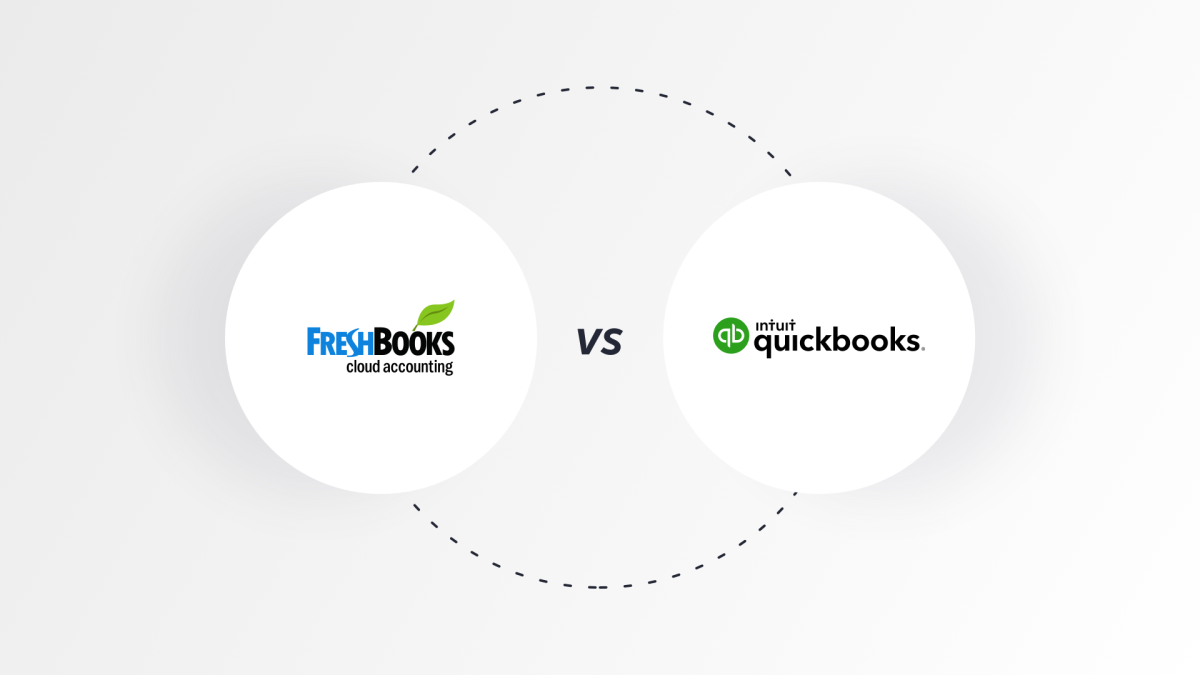When you’re running a business, having robust accounting software is one of the most important things you can control. You can’t, of course, control economic circumstances outside your influence, but you can absolutely determine how you respond to market forces, and one of the best ways to do that is to ensure you’re using the right software.
Two of the most famous pieces of accounting software out there are unquestionably FreshBooks and QuickBooks, both of which you’ve almost certainly heard of before (if you’re not already using them, that is). The great FreshBooks vs. QuickBooks debate has raged for a long time, and while we can’t hope to settle it once and for all, we can at least throw our two cents in. Here’s our look at whether FreshBooks or QuickBooks is a better piece of software for your needs.
QuickBooks is better for product sales
As HubSpot says, QuickBooks is a better choice if your business is in the, uh, business of product sales. If you find yourself dealing with actual merchandise, QuickBooks is a better piece of software because of its support for systems like Shopify, which is one of the most popular ecommerce platforms out there. QuickBooks is also great for physical stores because it has a point-of-sale feature, which allows you to integrate with the online segment so that all of your business is contained within one place.
FreshBooks is better for simplicity
If you don’t really want software that’s going to take a long time to learn and understand, then you’re better off with FreshBooks. Although both FreshBooks and QuickBooks are powerful pieces of software, QuickBooks takes longer to learn thanks to its inherent complexity and depth. FreshBooks is a simpler and cleaner app to use, so if you’re not the kind of person who likes to take a long time to get to grips with systems, then you should definitely opt for FreshBooks. It’ll keep your business easy to run in the long term.

QuickBooks is a better budgeting tool
When your business needs to watch the pennies, QuickBooks is definitely the choice for you, as confirmed by Forbes. This is because it comes complete with budgeting tools, which will help you to understand how to allocate your funding as best you can and make savings where possible. It might be that FreshBooks allows you to do this in a roundabout way, but QuickBooks makes the budgeting process much simpler and more straightforward, despite the fact that the app overall is a much more complex proposition. If you need budgeting tools, you should definitely opt for QuickBooks.
FreshBooks is better for freelancers
Although QuickBooks boasts the edge in terms of budgeting, FreshBooks is definitely the better choice if you want to create invoices and make sure your freelance affairs are in order. FreshBooks has one of the best and most intuitive invoice creation tools of any app out there; it lets you preview invoices, edit them while you’re viewing that preview, and even insert your own images, like company logos or personal photographs. While QuickBooks offers invoicing tools as well, they aren’t a patch on the ones offered by FreshBooks, so if your freelance business is taking off, you know where to go.

Both have comparable pricing
If you’re worried about spending too much money, then bear in mind that both QuickBooks and FreshBooks have similar pricing structures. Both services regularly run promotions that see their prices dip as low as £1 or £2 per month for a six-month period, after which the prices will default to their regular amounts. At time of writing, FreshBooks’ lowest tier cost £6 per month, rising to £12 per month after six months. Comparably, QuickBooks was offering an introductory £1/mo offer, rising to £10 after six months. You won’t break the bank no matter which app you choose.
QuickBooks is better for businesses
As a general rule of thumb, if you’re running a business at any degree of scale, then you’re probably going to want to use QuickBooks. This is because QuickBooks has a ton of features aimed at businesses with staff to take care of; it’s got payroll functionality, so you can keep track of who needs paying and when, and it’s also good for making sure you’ve dotted your Is and crossed your Ts when it comes to tax payments (which, admittedly, is something that freelancers struggle with as well). If you’ve got multiple staff members to manage, pick QuickBooks.

FreshBooks is better for individuals
Thanks to its suite of freelancer tools, its superior invoicing structure, and its ease of use, we’d peg FreshBooks as the perfect choice for individuals rather than teams. You can use FreshBooks as a team, of course, and you’ll get plenty out of it if you do, but you’ll be missing a trick if you don’t opt for QuickBooks in that situation. FreshBooks has everything you need to get your sole trader business off the ground, and it’s also excellent for managing expenses, which you’ll want to factor into your invoices when you’re requesting invoice payments from clients.
They’re both excellent pieces of software
If you came into this article hoping to find a definitive answer to the QuickBooks vs. FreshBooks debate, then we’re sorry to say that you’re going to come away disappointed. Both FreshBooks and QuickBooks are excellent pieces of accounting software with something unique to offer, so no matter which one you pick – and no matter what situation you’re in when it comes to your business – you’re going to benefit from using them. It all comes down to personal preference, so why not give both of them a try for a month or two and see which one you like best?


